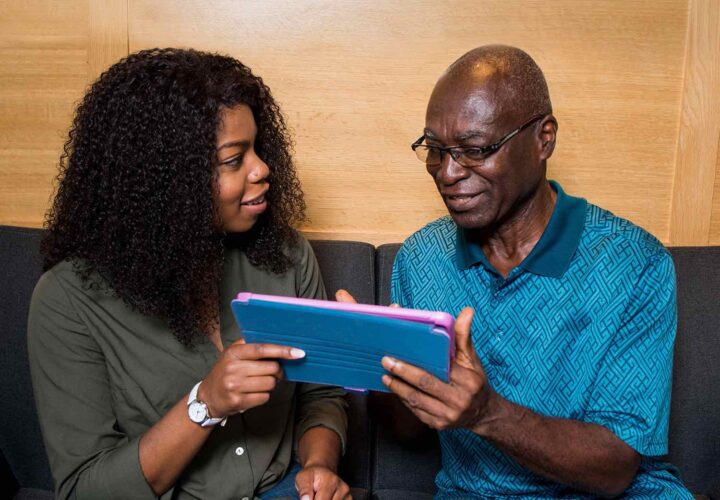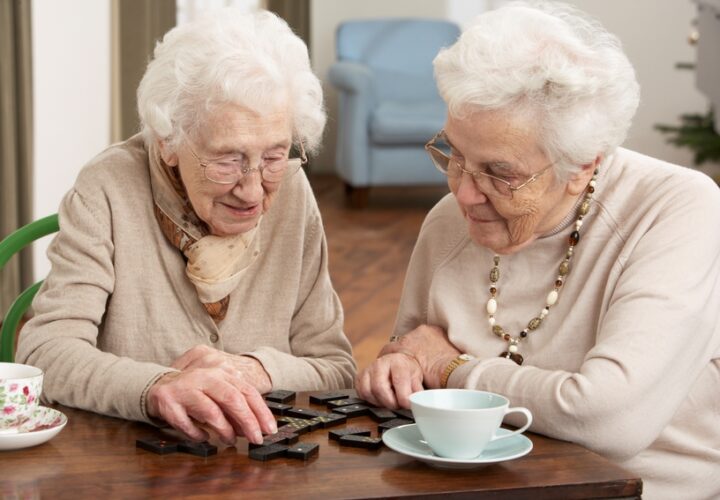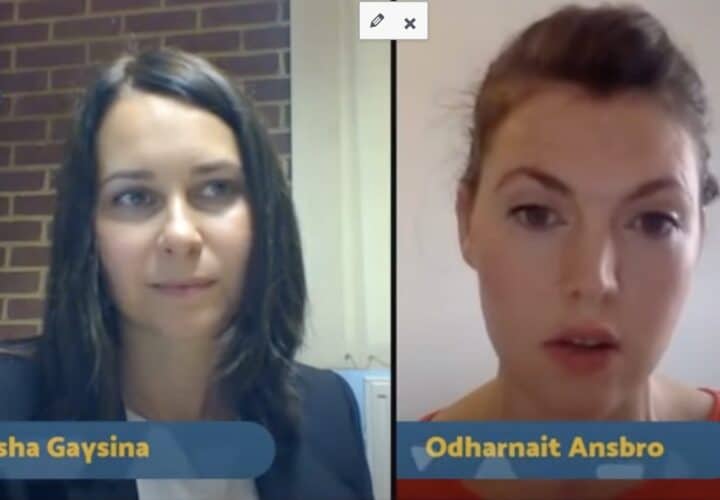A new smartphone app can help people with Alzheimer’s and other forms of dementia recapture old memories via reminiscence therapy.
The free app, called My House of Memories, features more than 100 pages of carefully curated images meant to evoke events from the lives of people with dementia and their caregivers. Users can tap through pictures of objects or events that were popular during their childhood, such as a 1950s kitchen, Tinker Toys, or a black metal lunch pail.
“The app can be a springboard for conversation about something other than the weather,” Maureen Aksamit, the cognitive health and wellness director for the Charter House-Mayo Clinic Retirement Living Community in Rochester, Minnesota, told Next Avenue. “It’s an opportunity to enjoy each other’s company.”
What Is Reminiscence Therapy?
The app, created by the Minnesota Historical Society, is a form of reminiscence therapy, which encourages people with dementia to talk about experiences from their past, usually with the help of visual prompts, such as videos, pictures or objects.
Because there are few downsides to it, reminiscence therapy is one of the most popular ways to improve dementia patients’ mental, emotional, and social aspects of health. But how effective is it?
Benefits of Reminiscence Therapy for Dementia
According to a 2018 Cochrane review, reminiscence therapy can modestly improve quality of life, cognition, communication and possibly mood in people with dementia, depending on how it is administered, and how often.
A 2015 meta-analysis published in the Journal of the American Medical Directors Association, meanwhile, concluded that reminiscence therapy is an effective way to treat depression and improve cognition in people with dementia, and should be utilized as routine care – especially for institutionalized residents, who seem to experience the greatest benefits.
Because the benefits of reminiscence therapy are short-lived, the authors suggest that it should be practiced routinely, as a way of connecting the caregiver and the patient, and to stimulate memory pathways in the brain.
A recent small study on reminiscence therapy using virtual reality technology found that it helped people with Alzheimer’s and other forms of dementia recall distant memories. It also reduced aggression and improved patients’ interactions with caregivers.
To learn more about My House of Memories and download the free smartphone app, visit the Minnesota Historical Society web site.
[Image courtesy Minnesota Historical Society]




Thanks for sharing this content loaded with fruit -full information. I would like to add some on this. For seniors who have dementia, receiving reminiscence therapy is very important as:
It helps them to reassert their feelings of being relevant.
It helps them reflect on their accomplishments and be grateful for what they have done.
It can boost their mood, decrease stress, reduce agitation, and reduce anger, wandering, and more.
It also allows the seniors to talk more rather than listening to others all the time.
I am learning so very much from beingpatient.com and can not thank you enough. I copy everything so I don’t forget it, and share as much as possible with my husband.